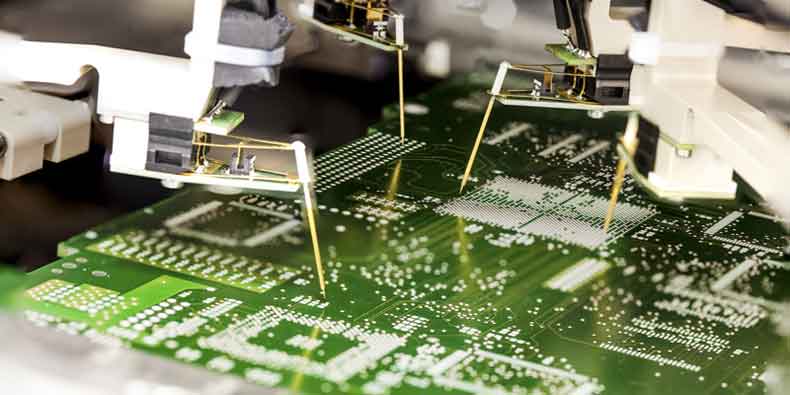
Quality control (QC) is critical for PCB fabrication. At PCBONLINE, QC is integrated into every step of the electronics manufacturing process, from raw material inspection to final delivery. This article explores how PCBONLINE ensures PCB success through our comprehensive quality control system.
Part 1. DFM Lay the Foundation for PCB Quality Control
An effective PCB begins with professional Design for Manufacturing (DFM). At PCBONLINE, engineering is far more than Gerber and BOM checks. Our DFM includes a holistic review for manufacturability and cost-efficiency.
Our engineers optimize PCB manufacturing by considering production capabilities and constraints early on, reducing costs, errors, and enhancing product quality. Key DFM factors include:
- Simplifying the design while maintaining functionality
- Smart material selection (we can select alternating components for expensive parts to reduce PCBA costs without functional and quality sacrifice).
- Strategic component placement
- Ensuring signal integrity and thermal reliability
- Facilitating assembly and testing
- Preventing common pitfalls such as insufficient solder mask around pads.
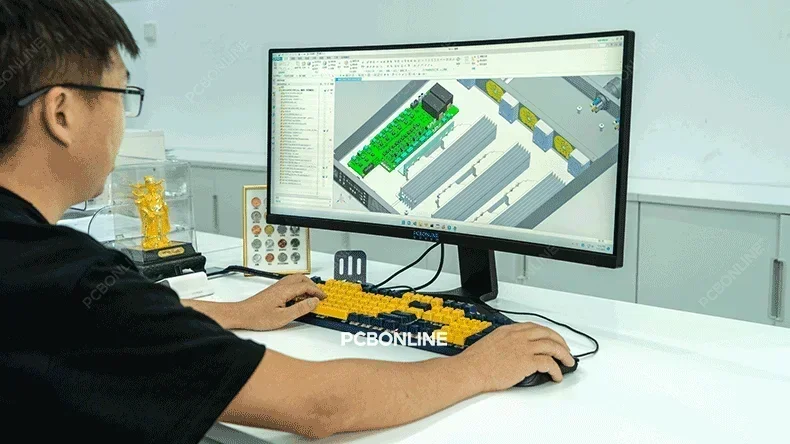
PCBONLINE offers free DFM/BOM/DFX checking and guidance, even at early stages, ensuring your project transitions smoothly from design to production. Their engineers provide one-on-one support, helping reduce development costs and improve yield, especially in high-stakes sectors like military and medical electronics.
By catching manufacturability issues early, PCBONLINE prevents costly reworks and ensures designs are production-ready from the start.
Part 2. PCB Manufacturing Workflow Integrated with QC
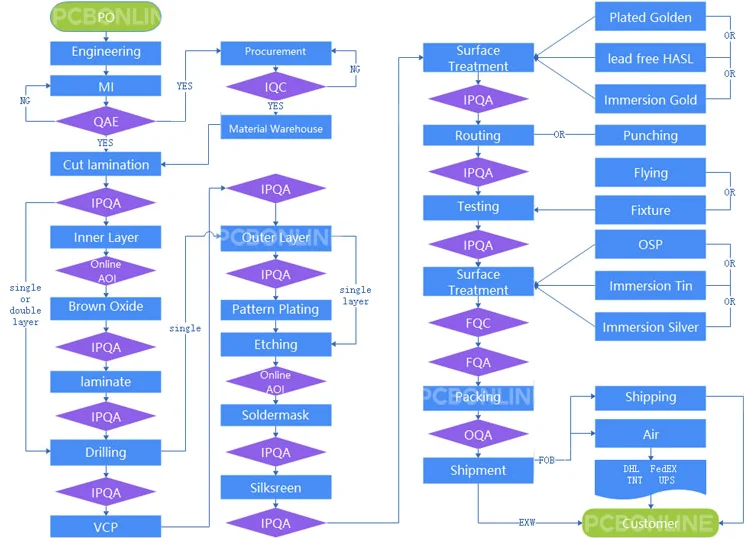
- Engineering & design review: Before production starts, the engineering team verifies manufacturability, followed by QAE (Quality Assurance Engineering) checks to ensure compliance with standards.
- Incoming quality control (IQC): All raw materials—laminates, copper foils, chemicals, and drilling bits—are inspected before entering the warehouse. Only qualified materials are approved for production.
- In-process quality assurance (IPQA): At every key stage—cut lamination, inner layer fabrication, oxide treatment, lamination, drilling, etching, solder mask, and silkscreen—IPQA checks are conducted. This prevents defects from accumulating and ensures stable production.
- Automated optical inspection (AOI): Both inner and outer layers undergo AOI to detect shorts, opens, and pattern misalignments. AOI provides 100% inspection accuracy before the boards proceed further.
- Surface treatment QC: Whether ENIG (Electroless Nickel Immersion Gold), immersion tin, immersion silver, or lead-free HASL, PCBONLINE performs QC checks to verify surface finish uniformity and solderability.
- Final quality control (FQC) & final quality assurance (FQA): After fabrication, every PCB passes through final quality checks and assurance. FQC ensures physical and functional performance, while FQA validates overall compliance with IPC and ISO standards.
- Outgoing quality assurance (OQA): Before shipment, OQA provides the last checkpoint to confirm that every PCB delivered to customers is defect-free and meets specifications.
By integrating quality control into PCB manufacturing steps, PCBONLINE guarantees that defects are identified early, preventing costly rework and ensuring the success of every PCB project.
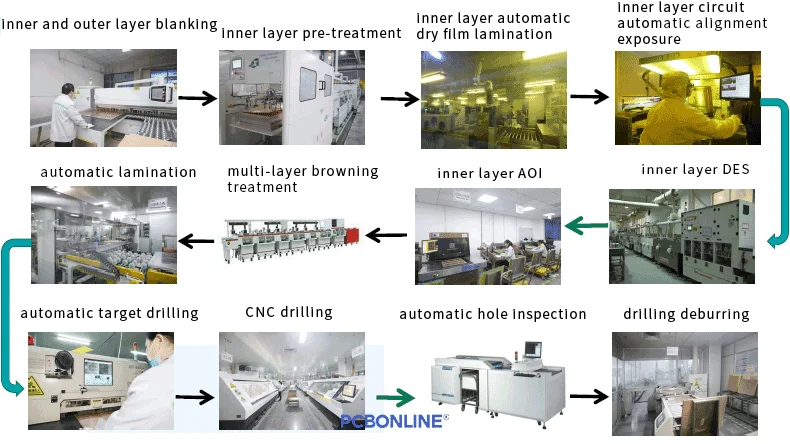
Part 3. Tests for PCB
Testing is an essential part of PCB quality control. PCBONLINE employs multiple test methods to ensure reliability and performance:
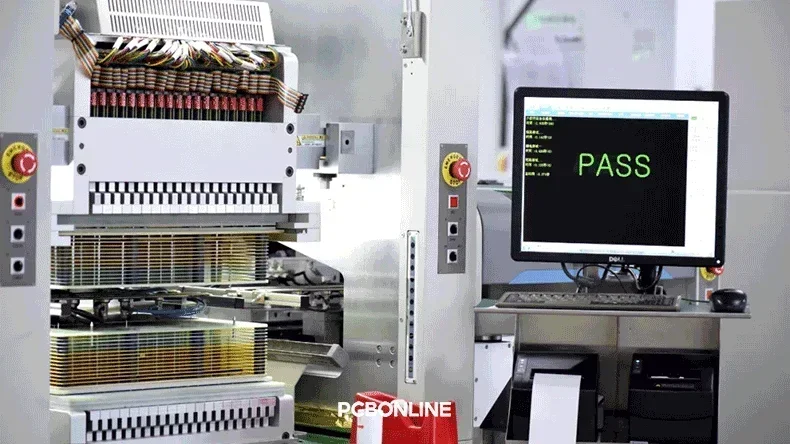
AOI (automated optical inspection)
After each circuit layer is created, we have an AOI inspection to ensure the circuit is etched well.
Electrical tests
- Flying probe test: Ideal for prototypes and small batches, flying probe tests check continuity and isolation without requiring test fixtures.
- Bed-of-nails fixture test: Used for mass production, this method allows rapid, simultaneous testing of all circuit nodes.
Impedance control test
Controlled impedance is critical for high-frequency PCBs. PCBONLINE performs impedance measurements to ensure signal integrity in high-speed designs.
Micro-section analysis (cross-section test)
This test reveals inner structure quality, plating thickness, and layer adhesion. It's essential for verifying HDI and multilayer PCBs.
Solderability test
Ensures that PCB pads have proper surface treatment for reliable soldering during assembly.
Thermal stress test
Simulates real-world conditions to ensure PCBs withstand repeated heating and cooling cycles without delamination or cracking.
X-ray inspection
For PCB boards with vias-in-pad or buried vias, X-ray inspection detects internal defects invisible to the naked eye.
These rigorous tests guarantee that every PCB not only passes visual inspections but also meets performance and durability requirements.
Part 4. Certifications for PCB
Certifications prove that a PCB manufacturer adheres to international quality standards. PCBONLINE holds multiple certifications, ensuring customers' trust:
ISO 9001:2015 quality management system certification
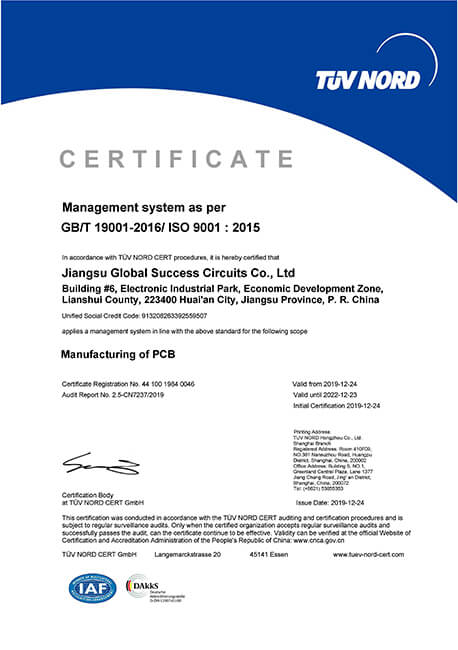
ISO 14001:2016, demonstrating our turnkey PCB manufacturing for automotive industry compliance.
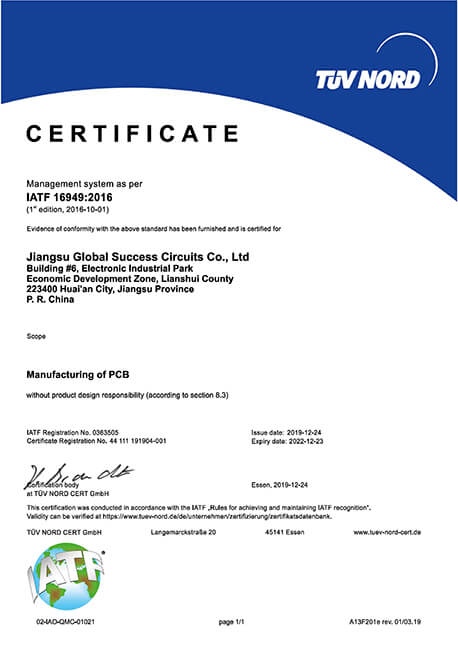
REACH: Guarantees environmentally friendly and safe production.
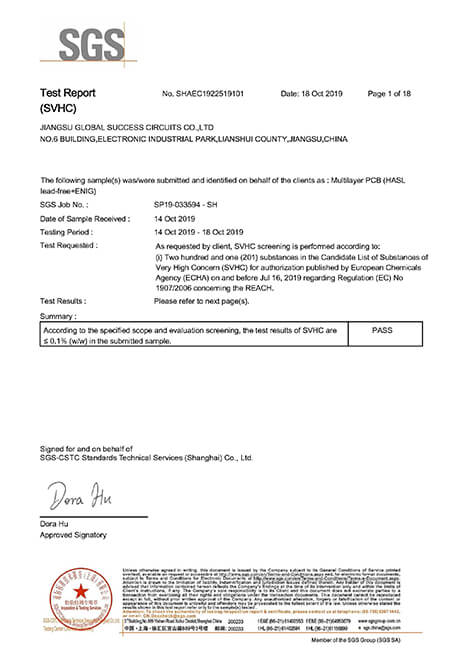
RoHS: Guarantees environmentally friendly production, which is a mandatory directive by the European Union.
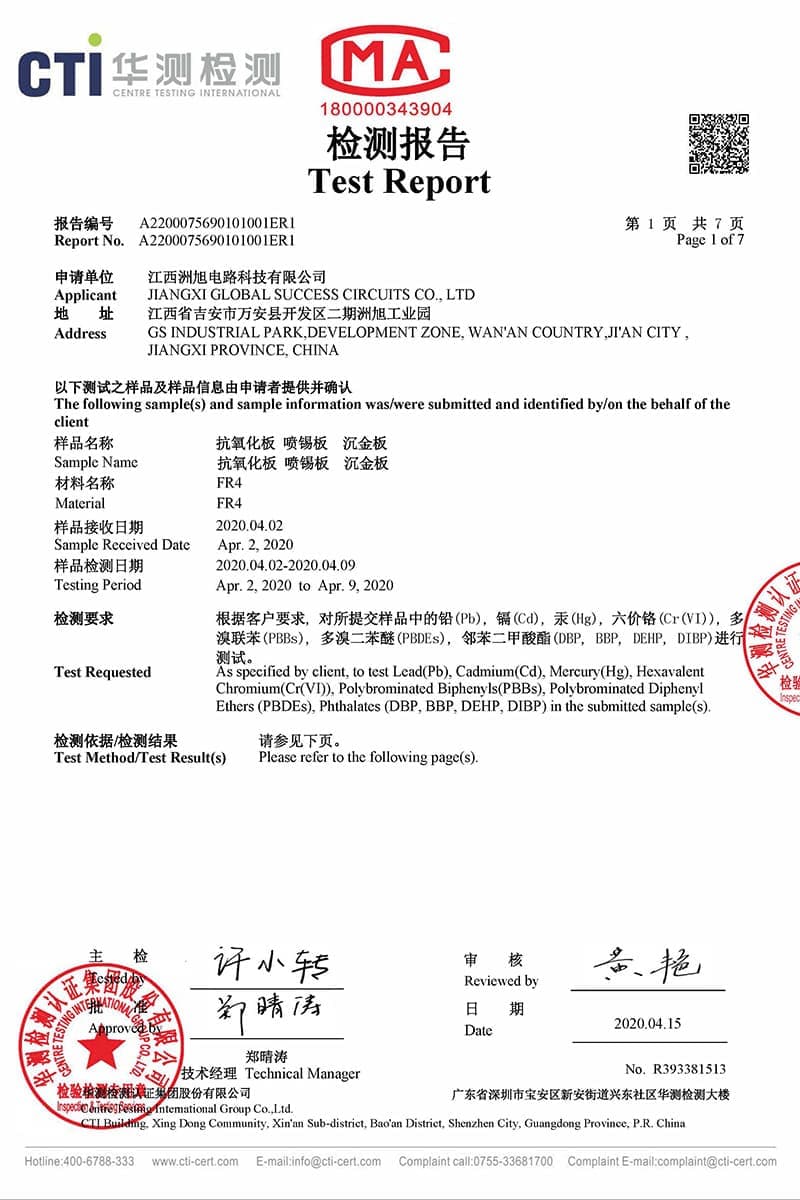
UL-E324220: Ensures product safety for North American markets.
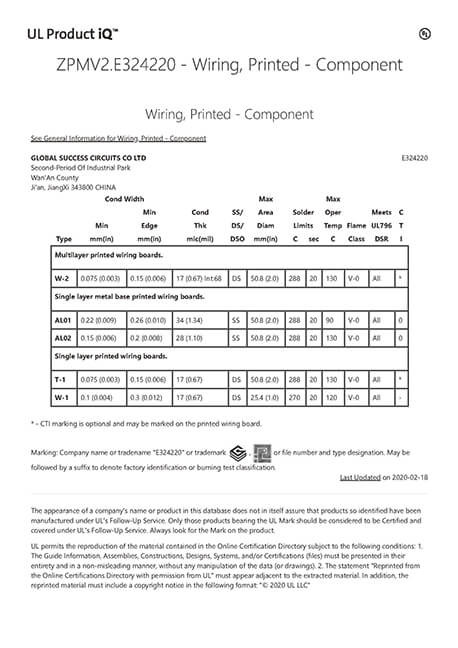
UL-E324220 Canada: Ensures product safety in Canada of the North American markets.
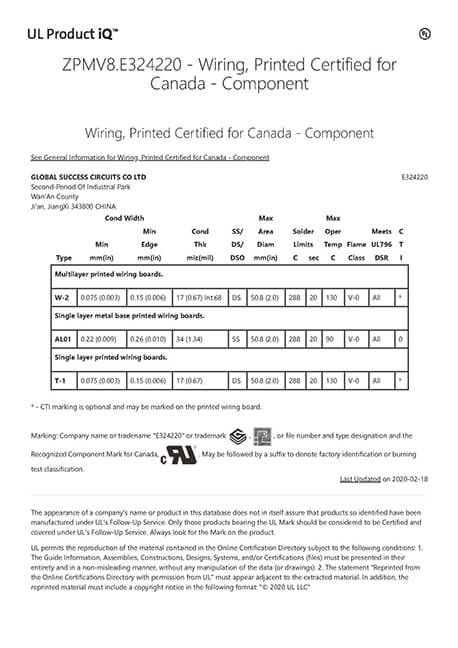
These certifications demonstrate PCBONLINE's commitment to producing PCBs for industries such as automotive, aerospace, medical, and consumer electronics with the highest level of reliability and compliance.
Part 5. Partner with PCBONLINE for High-Quality PCB Manufacturing
Choosing the right PCB manufacturer is not just about price, but also about ensuring quality, reliability, and long-term success. With its strict QC system, advanced testing methods, and international certifications, PCBONLINE stands out as a trusted partner for global clients.
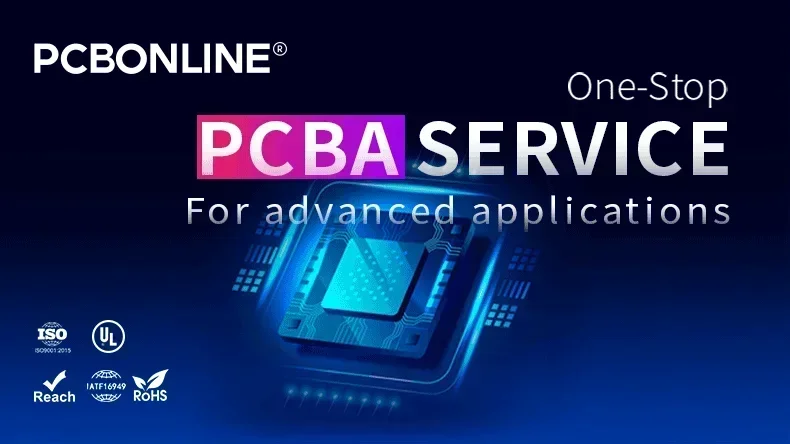
Founded in 2005, PCBONLINE has two large advanced PCB manufacturing bases, one PCB assembly factory, stable supply chains, and an R&D team.
Our strict quality control measures, including IQC, IPQA, AOI, FQC, FQA, and OQA, guarantee PCB zero-defect deliveries.
From design, fabrication, and assembly to system-level box builds, PCBONLINE provides one-stop solutions, ensuring consistent quality.
Each project is tailored to clients' needs with traceable quality records.
Our team provides one-on-one engineering support and ensures your PCB on PCB design is manufactured with precision.
Complete manufacturing and test equipment for turnkey PCB manufacturing and quality control.
High-quality PCB and PCBA manufacturing certified with ISO 9001:2015, ISO 14001:2015, IATF 16949:2016, RoHS, REACH, UL, IPC-A-600 Class 2/3, and IPC-A-610 Class 2/3.
PCBONLINE manufactures, assembles, and tests PCBs and PCBAs to box builds as a source factory manufacturer under one roof, from prototypes to bulky production, saving costs and time for you. Whether you need PCBs for automotive, aerospace, or medical equipment, we can complete them. If you want to get a quote or ask questions, you can send emails to info@pcbonline.com.
Conclusion
PCB success depends on strict quality control, and PCBONLINE ensures it by integrating QC at every stage of production. Whether you need prototypes or mass production for mid to high-end applications, PCBONLINE guarantees reliable, high-quality PCBs that power your innovations.
PCB fabrication at PCBONLINE.pdf




